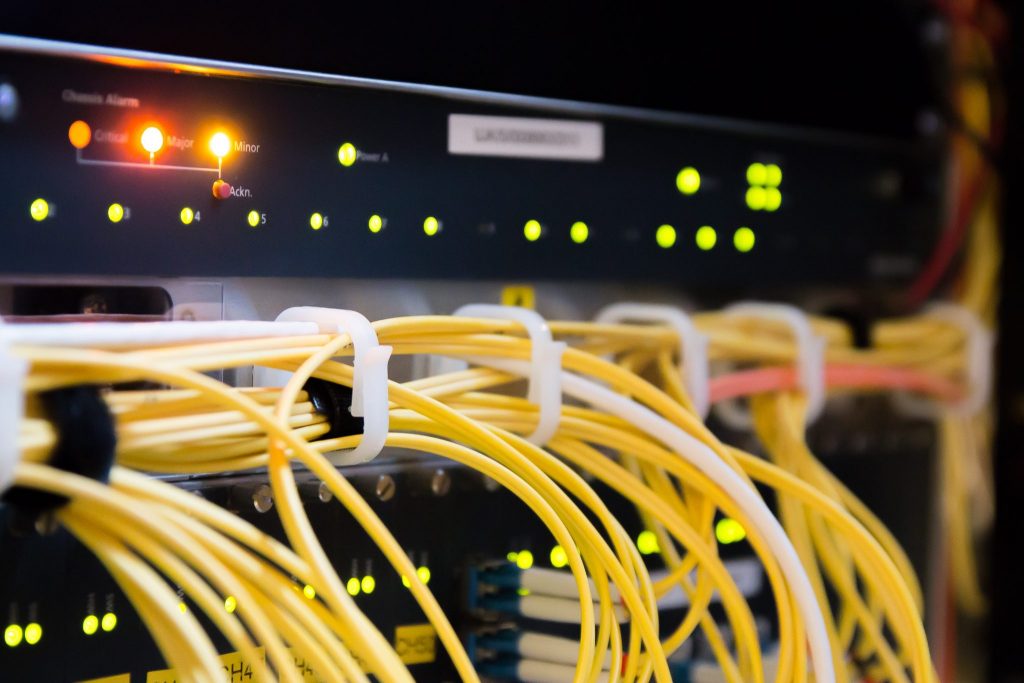Virtual private networks (VPNs) have become the lifeline for many businesses and employees today as it helps to keep the business-critical systems and processes running despite the coronavirus (COVID-19) lockdown. But this has not been easy for many small businesses and employees to adjust to this new way of working because of underlying technological issues — with one of them being the slow speed of a VPN. In this article, we’ll explore what slows the speed of a VPN and how you can fix it.
Why is the VPN slow?

There are many reasons for a slow VPN, starting from your device’s limited resources to the encryption method used and everything in between.
The Internet is a large network with dynamic routing protocols that span across billions of devices. When more people use the existing bandwidth, it becomes clogged and the speeds go down. Also, when some computers fail, the packets have to be sent through an alternate route and this causes congestion in the new route.
This is similar to road traffic. When one highway is closed for maintenance, all the traffic will either go through the city roads or an alternate highway, thereby congesting those roads and slowing the speed of overall traffic. Added to this is the fact that many companies don’t have the resources now to fix the failed computers/paths quickly, so restoration takes time.
Lastly, your VPN speed depends to a large extent on the speed of your Internet. If you have many people in your area accessing the Internet for entertainment, streaming, social media, and more, the speed will be slow and this will reflect in your VPN connection as well.
How to fix a slow VPN
Now that you have an idea of the possible reasons for the slow VPN speeds, let’s see some ways to troubleshoot and fix it.
Choose a wired connection

If your family members are using the Internet for online streaming, the speed will naturally go down. One way to overcome this problem is to use a wired Internet connection instead of WiFi as the latter relies on a shared channel to transmit data across different devices. For this reason, consider using a wired connection over a wireless one when your VPN speed is slow.
Restart your devices
A simple and often overlooked option is a device restart. Sometimes, your device can run out of memory and resources due to prolonged use, so a restart can address these underlying problems. Restart both your computer and the router to see if it improves your connection speed.
Change the VPN provider and plan
As with every service, all VPN service providers and plans are not the same. Go through the fine print of your agreement for hidden pitfalls and limitations and change your plan/provider if you have to.
Watch out for free VPN services as many reports show that these providers intentionally slow down the speed to make you switch to a paid plan. Consider these aspects and choose your provider and plan accordingly.
Select a different server
Ideally, choose a server that’s geographically close to you to reduce latency. Many service providers give the option to switch servers, so run through that list and pick the one closest to you for improved speed.
If you’re already using the closest server, there could be a problem in the network path between your device and server. Switch to the next closest server to see if that improves speed. Try switching between different servers until your speed improves. Some servers may be overloaded on certain days or certain times, so experiment until you find one that works best for you most consistently.
Change protocol settings
Sometimes, your VPN settings can cause network instability that in turn slows down your speed. Understand your configuration setting options and see which ones you can change to improve speed. One possible configuration is the underlying protocol. Most VPN connections use UDP over TCP because UDP is faster. But if the underlying network is unstable, TCP may provide better speed. Change these settings to see if it improves your speed.
Addressing design flaws
Many times, a VPN connection’s design is the reason for its slow speed. Typically, your computer is connected to a remote server through a single socket and your data is routed through that remote server. While this setup works to some extent, it fails when your bandwidth is overloaded or congested.
In such situations, use tools that enhance channel bonding. This technology combines multiple Internet connections and divides the data packets between connections. This will speed up your connection as it makes the most of the existing bandwidth and availability.
Enable split-tunneling

Many VPN providers offer an option called split-tunneling to meet the needs of many bandwidth-intensive applications. With split-tunneling, you decide which traffic goes through VPN and which ones go through your regular Internet connection. This option increases the speed as the traffic that goes through the VPN reduces.
Slow VPN because of ISP? Check your ISP’s speed
Sometimes, a slow VPN can be due to low speed or problems with your ISP. To understand if the problem lies with your ISP,
- Disconnect your VPN
- Run a speed test to know your ISP’s speed
If the speed is below acceptable limits, you know where the problem is. Talk to your provider or work IT pro to resolve the issue or switch providers if you have to.
Change the encryption
Encryption is an important safety feature for every VPN user as it encrypts and decrypts data without revealing the transmitted information to the world. Unfortunately, encryption strength is inversely proportional to connection speed, so stronger encryption methods slow down your VPN speed.
In situations where encryption is not needed, go for less-secure protocols as this will improve your connection speed. Some possible choices are:
- L2TP/IPSec has the highest security standards but slows down the speed.
- OpenVPN is better than L2TP/IPSec in speed but lower in security standards.
- SSTP is faster than both OpenVPN and L2TP/IPSec, but less secure.
- PPTP is the fastest but comes with outdated security standards.
In other words, if you take this option, you’ll have to choose between speed and security and this depends to a large extent, on what you’re sending and receiving. For example, if you’re accessing your company’s confidential information, L2TP/IPsec is the best option even if it means slow speed. On the other hand, if you’re accessing non-secure information, PPTP is a good choice. It just depends on you. Try different encryption standards to determine the one that works best for you.
Check your system’s performance
The problem could lie with your system and not the connection. For example, if you’re running a torrent application that’s seeding 20 clients, that’s your problem. So, check what applications/processes are running in your system and how much resources they’re using. This is a good starting point to eliminate problems in your system.
Open the task manager and see the list of running processes. If any of it consumes too many resources, kill that process if you don’t need it, restart your device if you have to, and check the speed again.
Disable firewall and antivirus software
The firewall and antivirus software on your system can slow your connection as it scans and filters every packet that passes through it. One way to increase your VPN connection speed is to disable this firewall and antivirus software. But also keep in mind that this is not the best option because it opens your computer to possible cyberattacks as there is no shield to protect your system. So, keep this as the last option and even if you disable it, ensure that it is only temporary and only for an emergency situation such as you need to upload a document to your corporate server.
Slow VPN can kill productivity
VPN is an essential tool in today’s connected world and it could become an integral part of work culture in the future. One of the bottlenecks of using VPN is its slow speed, which can hamstring your productivity. We hope the above fixes help you overcome this impediment to changing work culture.
Do let us know which of these worked and if you’ve used any other way to resolve your slow VPN speed. Thank you for reading and have a productive day.
Featured image: Shutterstock





I think it is misleading. L2TP is NOT faster and more secure than OpenVPN. And SSTP is a lot slower than both and questionable security. SSTP is slower because it runs on port 443. Questionable security is because it is owned by Microsoft. OpenVPN is the best standard available